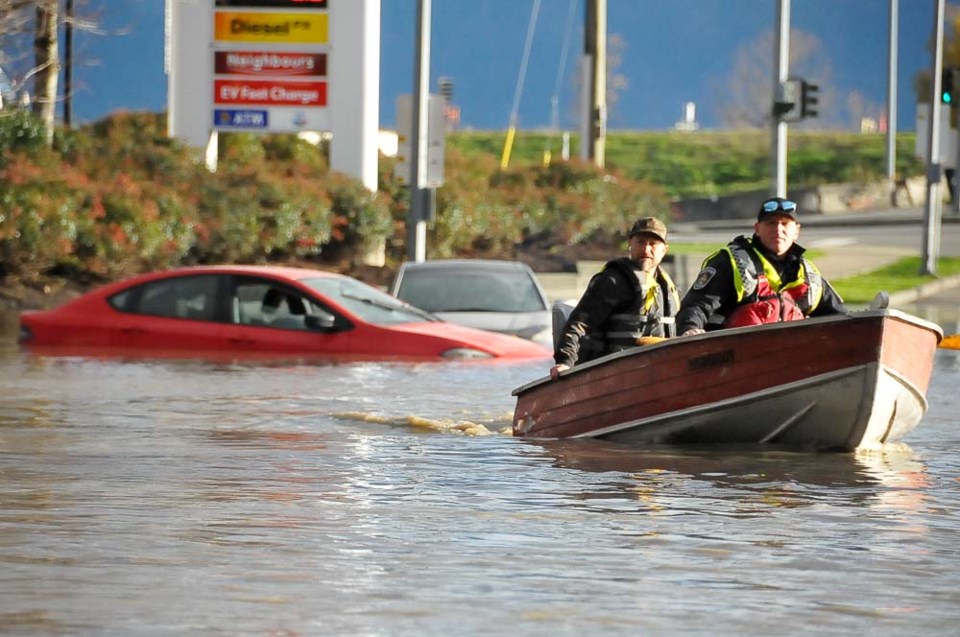The sa国际传媒 government is calling on the public to weigh in on how it should provide financial assistance in a disaster.
The process, which is open to individuals, communities and small businesses, will inform a new post-emergency financial-assistance regulation and follows the Oct. 3, 2023, introduction of the Emergency and Disaster Management Act.
The , which will be phased in starting late this year and will be reviewed every five years, requires infrastructure risk assessments and include the impact of climate change. The legislation is also guided by recognition of Indigenous rights and shifts emergency management from a focus on response to one that balances mitigation, preparation, response and recovery.
Bowinn Ma, Minister of Emergency Management and Climate Readiness, said her ministry knows there remain gaps in the regulation and that’s why they are calling on the public to help understand how they need assistance following an emergency.
“Following the 2021 atmospheric-river event, we received the highest number of applications in our Disaster Financial Assistance program’s history,” said Ma in a statement.
“I urge people to share their experiences so we can provide the most timely and effective assistance possible.”
Anyone interested in responding to the modernized emergency management act can do so by sending a written submission to [email protected] by Dec. 31, 2023 or attend a . The public is also invited to respond to a tailored to tenants, homeowners, farmers, small business owners, and Indigenous Peoples living on reserve lands, among others.
sa国际传媒 emergency support outdated, finds ombudsman
The call for public input comes less than two weeks after the province's ombudsman released a report that found emergency support programs for disaster evacuees in British Columbia are outdated, under-resourced, inaccessible and poorly communicated.
The analyzed the government’s response to wildfires and severe flooding in 2021, finding there was unclear and confusing communication, unreasonable delays and a lack of flexibility about how help was delivered.
Systems and processes that deliver assistance did not take into account the distinct needs of Indigenous evacuees, elderly people or those with physical and cognitive disabilities, said Ombudsperson Jay Chalke after the report's release.
"A one-size-fits-all approach that we've seen in the past in terms of emergency support is short-sighted and doesn't do nearly enough to meet the needs of a diverse public that it is trying to serve," Chalke said.
Meanwhile, Premier David Eby has appointed a 14-member task force made up of emergency and wildfire management experts to provide recommendations on how to better prepare for emergencies before the 2024 wildfire season.
Climate change making sa国际传媒 forests more flammable
The 2023 wildfire season was the most destructive in sa国际传媒’s recorded history, with fires burning more than 2.8 million hectares. That’s more than double sa国际传媒’s previous record set in 2018.
In sa国际传媒, the influence of climate change has been especially visible in recent years. The province has seen four of its most destructive wildfire seasons since 2017. Three of those saw more than a million hectares of forest burn across the province. By comparison, between 1919 and 2016, only three wildfires seasons burned more than half a million hectares, according to a recent study, which found .
That's left researchers to conclude that sa国际传媒 will join a shortlist of global hot spots for wildfire over the coming decades.
“British Columbia is alongside California, Australia and the Mediterranean countries in southern Europe where catastrophic fire driven by climate change superimposed on decades of land-use practices has made our ecosystems more vulnerable,” said Lori Daniels, a researcher in forestry at the University of British Columbia and one of the lead authors on the September study.
With files from the Canadian Press


